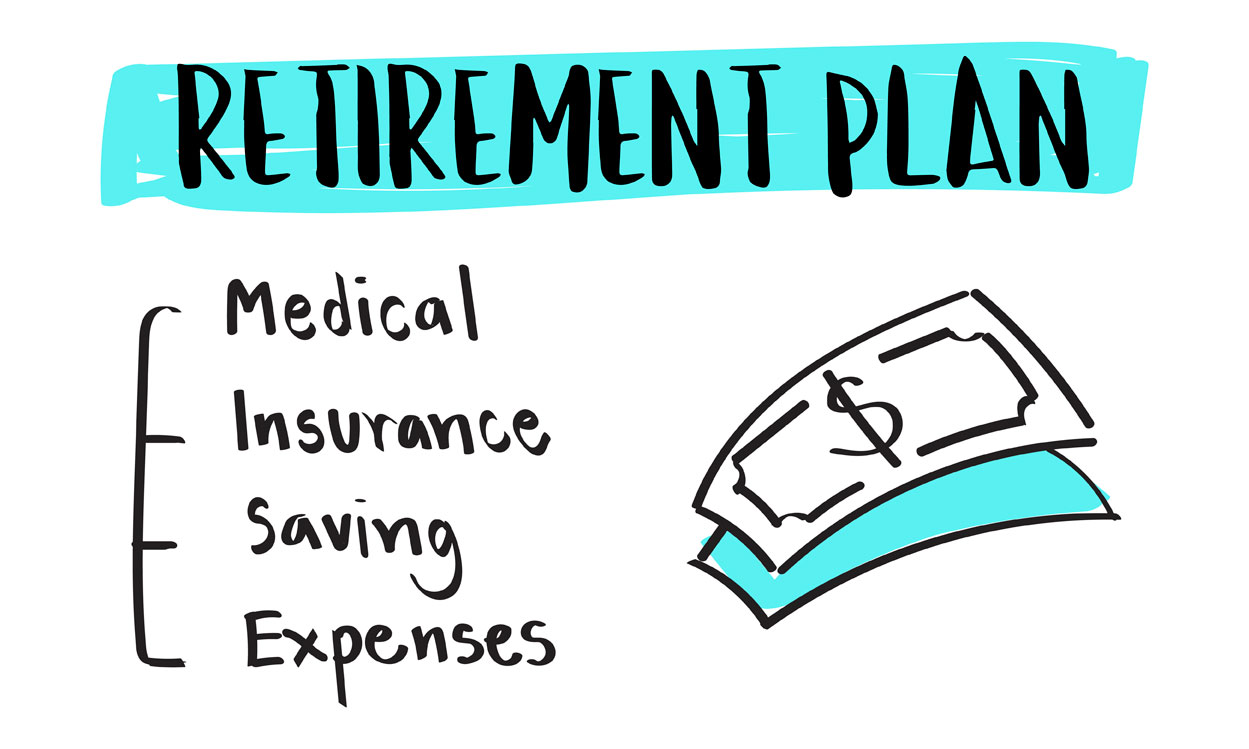The emotional effects of retirement are often forgotten as seniors plan for their own, but the positive and negative feelings that occur should be ranked high on the list.
Retirement planning often considers economic and employment changes, but the emotional well-being of retirees is often overlooked. Emotional changes happen whether the choice to retire is made willingly or not. Many people are only aware of the positive feelings that come with retiring, which causes negative ones to be more shocking.
While joy, anticipation, excitement, and closure are common, seniors also need to be prepared for both positive and negative emotions during each part of the retirement process.
Table of Contents
Emotions experienced related to retirement
Retirement can spark both positive and negative feelings, and you can sometimes use negative ones to create positive outcomes. Our emotions are what propel us to change and improve our outlook.
People looking to retire soon should begin planning for their emotional challenges as well as the financial and logistics. Jamie Chamberlin notes,
“Too few people consider the psychological adjustments that accompany this life stage, which can include coping with the loss of your career identity, replacing support networks you had through work, spending more time than ever before with your spouse and finding new and engaging ways to stay active.”1
Preparation is the best way to tackle these changes in your emotional state.
Some positive feelings are:
- Excitement – You may be looking forward to being able to spend more time doing projects that you never had time to complete. Being ready to retire and spend time with loved ones can make us feel more prepared to leave the workforce.
- Anticipation – This emotion can cause positive or negative reactions, and the positive side of this is part of the excitement. You may be awaiting all the thrilling things that you are imagining happening in the years ahead. Looking toward the future with positivity will help you to prepare for the years to come.
- Joy – If part of your plans includes more time with family or finally leaving a tough job, you may be feeling joy. This is especially true if that also consists of a new grandchild, travel plans, or other exciting life changes. Significant life changes are not the only ones that spark happiness. Time to do something for yourself may also be quite appealing.
- Hopefulness – If you are still feeling active and young, you may be feeling hopeful for a better tomorrow. If your job is stressful or especially challenging, you may be optimistic that your future is less stressed. You may also feel a sense of sureness if your life has been a little hectic in recent years. You can relax and enjoy your time instead.
- Relief – You may be relieved not to have to keep a schedule, answer to someone else, or keep a dress code. This can bring about many positive thoughts and make transitioning seem easy. This will be especially true for people leaving demanding careers or employers.
All of these emotions are great, but they often do not come alone. You may also be experiencing some of the negatives that seniors discover when they prepare to retire.
Negative emotions may be:
- Fear – This is the reverse side of anticipation or excitement. People who are excitable and irrational behave this way because they are often afraid. Feeling unsure of what the future holds, your financial stability or your longevity can make this difficult. These emotions are normal. You may also be anticipating doom if you feel ill-prepared. You should examine any negative manifestations to see if you need help preparing for the future.
- Dread – You may not be looking forward to retirement if you feel that you are being pushed out of a job you love, physically deteriorating, or unable to complete your usual daily tasks. Retirement may feel like a death sentence. If this is the case, you should find someone to talk with about these emotions. A therapist can be quite helpful for these situations.
- Loss – Many people do not expect to feel a sense of loss. You may think that you feel excited but then realize that you are mournful. Depressed feelings are often due to the ending of one life stage. Try to remember that you are also beginning the next phase.
- Of Friendship – You may be concerned that the friendships you have built with coworkers are coming to an end. This may be even truer if you have seen other retirees simply disappear from your world after retirement.
- Of Identity – What will your future look like now that you don’t do that job any longer. Service-oriented professionals often struggle with this. Teachers, medical professionals, social workers, police officers, firefighters, and other similar professions often feel the loss of identity.
- Of Value – Even if your job isn’t your identity, often, males especially, will feel that they have lost value if they are no longer the breadwinners. Though generations are changing these days, older male retirees may be feeling that they are no longer supporting their families. Older women, who have had a fulfilling career, may think that they are no longer contributing to society, the home, or the workforce. This can make people feel less valued.
- Of Self-worth – With identity and value, retirees sometimes see a drop in overall self-worth. You may no longer feel that you can contribute to anything. You may think that you are merely taking up space. Many retirees complain of being a burden or being in the way. For most people, this is far from the truth, but becoming dependent on others can exacerbate these emotions. Finding something worthwhile to do in your spare time can alleviate this.
- Grief – In addition to the loss, this emotion often follows an ending. Many people do not expect to grieve the end of their careers when they chose the ending. Allowing yourself to feel these things is essential. You also need to find a trusted friend or therapist to help you deal with these emotions.
- Anger – When a retirement happens due to circumstances outside of your control, this is one of the most common emotions. You may not know who or what you are mad with, but you will often feel rage or anger. Sometimes this emotion can come as a response to something else. When people are afraid or sad but do not know how to cope, they will often process it as anger.
- Frustration – When your expectations exceed your reality, you will often experience a feeling of failure. You do not know what to do to make things look or feel the way that you wanted. The changes become overwhelming, and dealing with them seems impossible.

Change can be tricky even if we were looking forward to the new life. Retirement, no matter how incredible, is one of life’s most significant transitions.
How do I use positive emotions to help prepare for retirement?
Positive and negative emotions are often related. Ask yourself what is causing changes to your normal emotional state. Why do you feel joy, happiness, or relief? Acts Retirement-Life Communities reminds us, “You have worked hard for this time in your life, so it’s important to get as much enjoyment out of retirement as possible.”2 The good news is that you can use that happiness to spur these emotions.
What are you anticipating? Plan carefully for those things. You can have a fulfilling retirement, but without proper planning for the future, you will enter the “Disenchantment Stage” without realizing it.3 Rather than dwelling on the things you now cannot do, spend each year planning a trip you can anticipate or a visit with family members.
If you feel that you are losing your identity, look for volunteer opportunities that you can schedule on your time. Take the things you were seeking from retirement and create your vision of the perfect week, month, or year. Yes, plans may change, but you’ll often feel better when you have direction.
Keep in mind, too, that retirement does not have to mean the end of your working days. Some retirees find joy in part-time work or even new careers.
Learning opportunities can also bring enjoyment. Learn a new craft, language, or hobby. Turn your excitement for the future into enthusiasm for a whole new chapter. This can offer retirees new leases on life.
How to cope with negative feelings?
What happens if you do experience negative reactions? Sometimes they will pass with time. Other people will find the emotions are seemingly permanent. They are not. Here are a few steps to take to minimize these feelings.
- First, you can give yourself a break.4 You can also anticipate these changes. Sadness, frustration, anger, and confusion are all normal. Being ready to feel these emotions can make them less overwhelming. Asking for help is one of the most beneficial things a retiree can do to make them less of a burden.
- Think about the reasons for the change in mental state. Are you scared of financial security? Or do you feel a loss of purpose? What can you do to feel differently? You may not always understand the reasons, but if you can find one, you may be able to change it.
- Act. Accept your emotions, but do what you can to improve the negative ones. If you are concerned about your health, talk to your doctor. Likewise, if you are afraid of financial struggles, find a financial professional. If you can’t afford to pay for extra services, see if your bank has a financial planner for customers. Meeting with someone else might make you feel better.
- Take care of yourself. If you cannot shake the feeling of impending doom, consider a trip to a therapist. This could be hard for people in older generations if they were taught that only crazy people go to therapy. However, in this day and age, therapy has become a place where people can learn positive coping skills, not just lie on a couch, and blame mom. Mental and physical health are both essential to a long life.
- Set goals!5 Decide to learn something new, complete a project, or take a trip. Give yourself something to look forward to doing each day. If you achieve one goal, set another. Giving yourself purpose will often result in better emotional status. If you are limited in your mobility or physical abilities, remember setting a book goal can be just as rewarding.
- Get active, both socially and physically.6 Of course, people who maintain good physical health live longer than those of us who do not. But, did you know that social well being can positively impact emotional health as well? Join a gym, senior exercise class, or simply walk in the park. Make time to forge or rekindle friendships. I am not suggesting romantic encounters, but if you are single, healthy dating life is also good for you. Friendships are also enormously valuable to our emotional health. Exercise and social connections to others can increase serotonin or other endorphin production.
Why do I feel a loss?
The exit from the working world will often feel like a loss. You are permanently losing your job. Think back on each position you have held throughout your life. Have you always felt joy when leaving? What about those jobs that you left on your own choices? Why did you leave them, and how did you feel?
You were likely starting a new chapter at a new employer, moving to a new city, or becoming a stay at home parent. These were great things to anticipate, but they were also losses. You may have lost connections to old friends, skills that you do not use as much, or other tangible items.
In all likelihood, you did not feel the loss as strongly as you do now because you had something you were anticipating. Even if you took time out of work to be a stay at home parent, you were looking forward to being with your small children. Now, your children are probably grown and have moved out of the house. Even if they live at home, they are less likely to depend on you for their well-being.
You are feeling a sense of loss, apprehension, or dread because you do not know what the future will hold. For some, retirement signals the end of life, but if you are 65, there is no reason you may not live another 30 years. People often do. Finding joy in the latter years is imperative to good health, mentally and physically.
How can I transition smoothly?

Smooth transitions can be difficult for any life change. Planning for these transitions will help minimize discomfort with the changes. Sometimes, this can be overwhelming, but seeking the right assistance can make a difference.
- Consider the areas that will be affected by leaving your job.
- How much financial stability will you have?
- How is your health?
- What are your eating habits?
- Do you exercise?
- What emotional changes do you anticipate?
- How do you plan to deal with difficulties?
- Consider who can help with these areas and how to plan for the changes.
- Do you have a financial planner, bank representative, or trusted friend to help with financial planning? If you do not, get referrals for experienced economic advisors.
- Do you have retirement savings such as IRAs, 401Ks, or other funds set aside? How old are you? Can you receive social security yet? Think about planning a preliminary budget before retiring using several different scenarios.
- Financial planning can be stressful considering you do not know how long you will need your income. Can you work part-time if you need to do so? Consider the financial aspects before retiring, and this will help with some of the anxiety of retirement.
- If your health is a reason for leaving the workforce, do you have insurance that will be used? Can you find affordable health care? Will you need in-home care, retirement or assisted living facilities or other assistance? How does that impact your financial stability above? Find an insurance agent to help.
- Will your diet change? Does that change financial considerations? Will you be grocery shopping, eating out, or cooking more? If you already pack your lunch for work, nothing may change but the location of the meal, but if you are used to eating at the bistro across town, will that change? How will that play into your daily plans?
- If you work out at a gym, but it’s no longer convenient, will you change gyms, end your membership, or continue as is? How does that impact your health and financial status after retirement? We often forget to incorporate exercise when we are home more because we forget that we are not walking around at work every day. If you don’t have a gym membership, consider getting one or finding ways to exercise at home. Keeping up with physical activities is essential. Planning for the change can help mentally and physically.
- How do you plan to handle emotional difficulties? Do you have a therapist, pastor, or friend that you could talk to if things seem too much? If your spouse is not retired yet, he or she may not understand your struggles. Try to find someone who understands depression, anxiety, mood, or retirement struggles.
- Unexpected issues occur in life. Preparing for these issues can have as many benefits as anything else we have discussed. Of course, you cannot plan which day the roof will spring a leak, but if you are due for roof repairs, incorporate them into your budget before or after retirement. Save some extra for when things go wrong.
- Do you have a financial planner, bank representative, or trusted friend to help with financial planning? If you do not, get referrals for experienced economic advisors.
All unexpected occurrences are not financial changes. Sometimes we have unanticipated medical needs. Plan for what you will do if you need in-home care, medical equipment, or other medical changes. While you certainly hope none of those things happen, having a plan for if they do can feel more secure.
How can I accept the difficulties of aging?
Aging is challenging whether you are retiring or not! One of the things that Rosenthal and Moore noted was, “Outcomes of a large UK study showed almost twice the number of retired individuals compared to those still employed at the same age suffered chronic conditions such as diabetes, stroke or cancer.” Some of these risks simply increase with aging. However, some of these risks grow with a lack of activity.
Depression and anxiety can make you feel that activity and eating right are useless. Battling these feelings will improve your emotional and physical concerns post-retirement. Understanding the aging process can also help.
Talk to your doctor about what you can do to maintain a healthy lifestyle after stopping work.

Upon retirement, you need to ensure that you stay active in ways that make you happy. If you do not like walking laps, by no means do that. However, if you love walking your dog, take a few extra walks per day. The movement and outdoor environment can both improve your mental health and well-being. You should enjoy your time and not have to stop living because you stop working. You don’t even have to stop working because you retire!
Related questions
What are the five stages of retirement?
Acts Retirement-Life Communities lists the five emotional stages of retirement as Planning, Excitement, Honeymoon, Disenchantment, and Reorientation & Stability. These stages have been discussed in detail here, but they may have different names. Maximizing the first step can minimize stage four.
How long does it take to adjust to retirement?
Like adjusting to anything, this is person dependent. The more that you plan for your difficulties, the more comfortable you may find it to adapt. Likewise, people who choose retirement rather than feel forced into it are likely to adjust more quickly. Take your time.
What is post-retirement fatigue?
Post-retirement fatigue is just the name given to the difficulty in finding your happiness and contentment after retirement. People who feel deep feelings of loss, depression, or anxiety may be diagnosed with post-retirement fatigue. Finding healthy ways to cope can minimize the negative impacts of change.
I am retired and bored; what can I do?
Boredom after retirement does not have to be permanent. Find a job, volunteer opportunity, or hobby. Learning a new skill can take up your time and keep you from feeling bored or lonely. What do you want to do? Taking classes also does not have to be formal college courses. Take a cake decorating class at a local craft shop or learn blogging/vlogging!
References
1 Jamie Chamberlin, “Retiring Minds Want to Know,” American Psychological Association, 2014 https://www.apa.org/monitor/2014/01/retiring-minds. Accessed May 26, 2020.
2 “The Emotional Stages of Retirement.” Acts Retirement-Life Communities. 23 May 2019. https://www.actsretirement.org/latest-retirement-news/blog/2019/5/23/the-emotional-stages-of-retirement/. Accessed May 26, 2020.
3 “The Emotional Stages”.
4 Amy Morin, “8 Tips for Adjusting to Retirement.” VeryWellMind.com 5 April 2020. https://www.verywellmind.com/tips-for-adjusting-to-retirement-4173709. Accessed May 26, 2020.
5 Amy Morin “8 Tips for Adjusting to Retirement”.
6 Doreen Rosenthal & Susan Moore. Retirement Health and Well-Being. The Psychologist 30 Oct 2018. https://thepsychologist.bps.org.uk/retirement-health-and-wellbeing. Accessed May 26, 2020.
